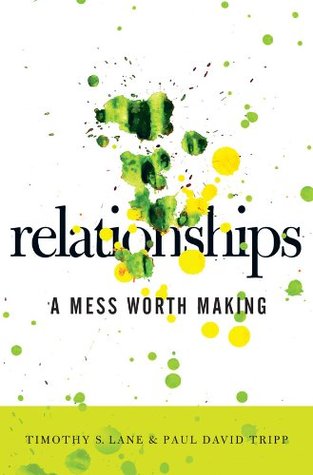More on this book
Community
Kindle Notes & Highlights
What the book has to offer is not the wisdom of two men who have arrived, but the worship of two needy men who want to point you to the unfathomable and accessible resources of the God who has been with us and is with you.
There are times we wish we could live alone and other times we are glad we don’t. What is certain is that we all have been shaped significantly by relationships that are full of both sorrow and joy.
The difficulty is that sin and grace coexist in all of them. Sin gets in the way of what grace can do, while grace covers what sin causes. Our relationships vividly display this dynamic mixture of gold and dross.
When I have learnt to love God better than my earthly dearest, I shall love my earthly dearest better than I do now. In so far as I learn to love my earthly dearest at the expense of God and instead of God, I shall be moving towards the state in which I shall not love my earthly dearest at all. When first things are put first, second things are not suppressed but increased.
“Helper” is used primarily to describe a companion, not a fellow laborer.
Our struggle with sin is constantly revealed in them.
when we reverse the order and elevate creation above Creator, we destroy the relationships God intended—and would have enabled—us to enjoy.
difficult relationship is a mark of his love and care.
God constantly protects us from ourselves by restraining our sin.
No other relationship ever suffered more than what Father, Son, and Holy Spirit endured when Jesus hung on the cross and cried, “My God, my God, why have you forsaken me?
This will give you the encouragement you need to tackle the rewarding but difficult work of redemptive relationships. If you wonder, Why bother? the answer is, “Because God did.
the desire for safety and independence collides with the longing for relationship.
Communion with this God is at once also communion with those others who have entrusted themselves in faith to the same God.
whether you “think” theologically or not, you are “doing” theology every day in the decisions you make, the words you speak, the feelings you have, and the attitudes you nurture in your heart.
Of all the things Christ could pray for at this moment, he prays for the unity of his people.
The ultimate flaw in the three kinds of relationships described earlier is that each is driven by personal desire rather than God’s purposes.
Every time you affirm the humanity of another, you honor the Creator who made you both.
It is tempting to look at the trouble in our relationships and locate the problem outside ourselves.
These four words mean that our biggest problem is inside us and we can’t fix it on our own
Relationships are best built upon godly, mutual dependence.
Godly relationships flourish best between two humble people who acknowledge their weaknesses and sins and their need for grace. The self-righteous person who denies his own need will not be a channel of grace to others. (“After all I have done for you, this is the way you treat me?!
If you find satisfaction in material things, you will either be disinterested in relationships or use them to get what you want.
When love for God is replaced by love for self, we see people either as obstacles that hinder our goals or vehicles that promote them.
People who crave comfort are excited about easy relationships and annoyed by difficult ones. People who crave control are threatened by strength and gravitate to weakness. People who crave material things shun relationships that hinder their pursuit.
even when we are sinned against, we are responsible for how we react.
This is the only way we can turn back the destructive power of sin in a relationship.
it encourages us to think that our biggest problem is outside ourselves.
Being sinned against tempts us to sin. So our need for Christ is as big when we are sinned against as it is when we sin.


